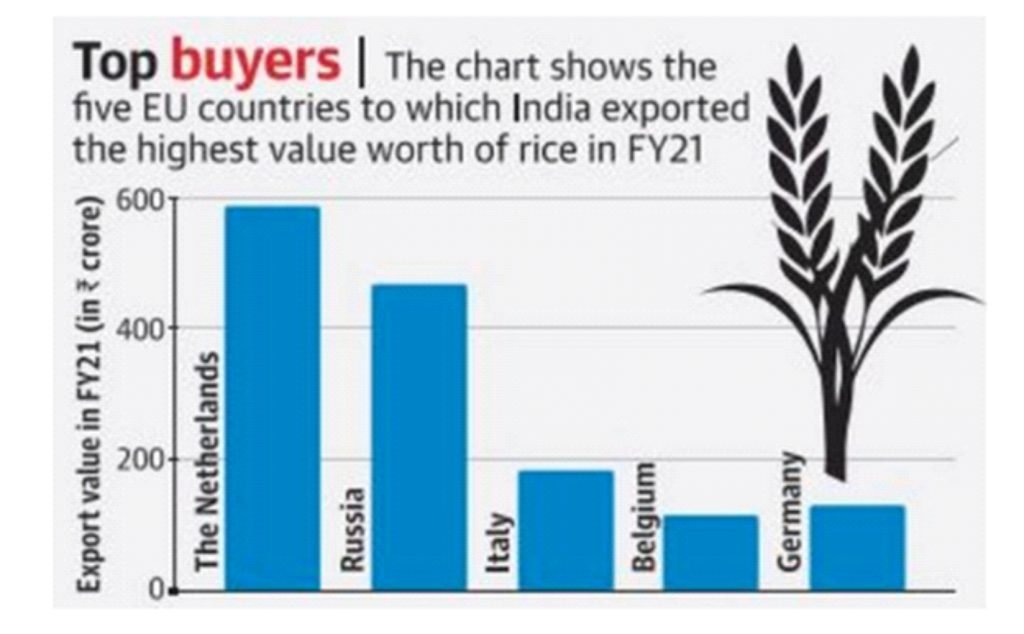Kushinagar International Airport
Indian Express
GS 1: History of India
Context:
- Indian Prime Minister inaugurated the Kushinagar international airport in the presence of ministerial colleagues, UP CM, and representatives from 12 countries including a special Sri Lankan delegation.
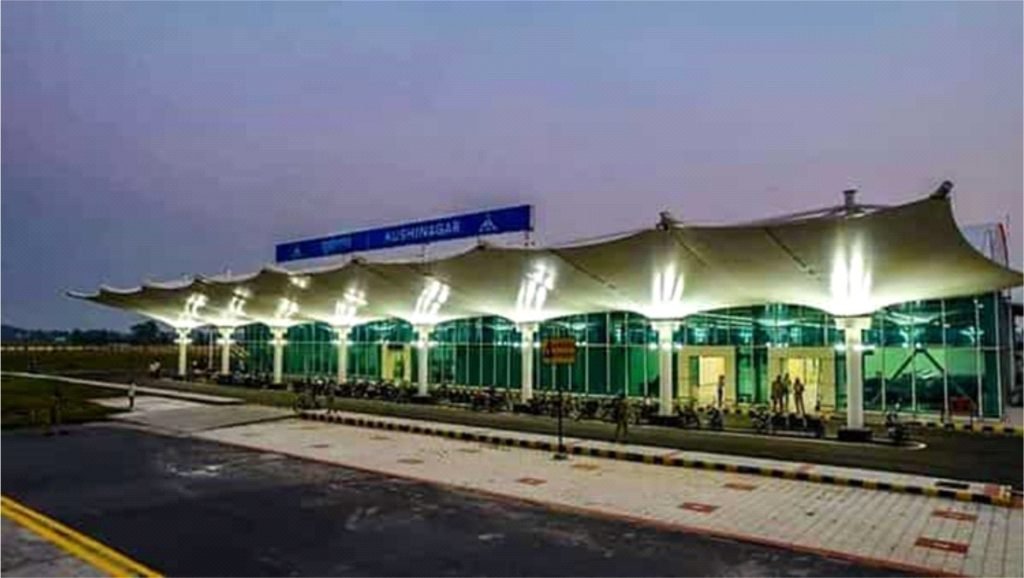
About:
- The airport in eastern UP, the third international airport in the election-bound state, will mainly service the Buddhist tourism circuit.
- The Sri Lankan Airlines flight carrying monks and dignitaries was the first to land at the airport.
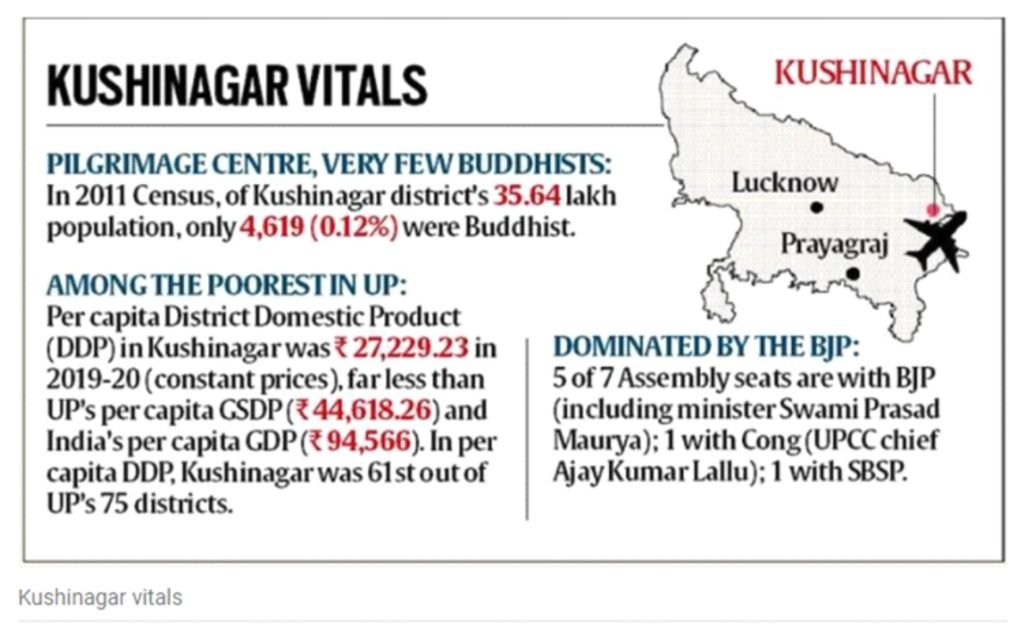
Kushinagar and The Buddha
- The Buddha was born as the prince Siddhartha Gautama in c. 563 BCE in Lumbini, and he lived until the age of 29 with his parents in the Shakya capital of Kapilavastu.
- He attained enlightenment under the Bodhi Tree in Bodh Gaya, and gave his first sermon at Sarnath near Varanasi.
- He taught in the area around Rajgir, where he was built a forest monastery by king Bimbisara of Magadha.
- He lived the largest part of his life as The Buddha in Shravasti. He delivered his last sermon in Vaishali.
- Among the most important of Buddhist pilgrimages, Kushinagar was where The Buddha attained Mahaparinirvana (ultimate salvation) in c. 483 BCE. However, it has a negligible population of Buddhists.
- Today’s Kushinagar is identified with Kushinara, capital of the ancient Malla republic, which was one of the 16 mahajanapadas of the 6th-4th centuries BCE.
- The area went on to be part of the kingdoms of the Mauryas, Shungas, Kushanas, Guptas, Harshavardhana, and the Palas.
- Kushinara is believed to have been inhabited until at least the 12th century.
- The first excavations in Kushinagar were carried out by Alexander Cunningham and ACL Carlleyle, who unearthed the main stupa and the 6-metre-long statue of the Reclining Buddha in 1876.
- Kushinagar is among the very few places in India where The Buddha is depicted in reclining form.
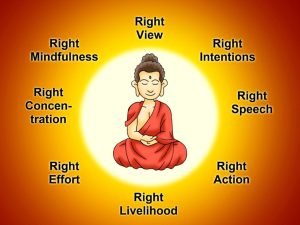
Buddhist tourism sites
- In 2016, the Ministry of Tourism announced the Buddhist Circuit as the country’s first transnational tourism circuit, covering sites in Nepal and Sri Lanka alongside those in India.
- The Buddhist Circuit includes Bodh Gaya, Vaishali, and Rajgir in Bihar, Kushinagar, Sarnath, and Shravasti in UP, and Lumbini in Nepal.
Cultural diplomacy
- There is an awareness in the government that the absence of tourist infrastructure is a major reason why India loses out to Southeast Asian nations such as Indonesia and Thailand.
- The hope is that world-class facilities will be able to attract Buddhist tourists to India, and boost revenues and employment generation.
- A Buddhist Circuit tourist train covers all destinations in 14 days, and helicopter services and more airports are in the pipeline.
- The push is intended to assert and consolidate India’s position as the original centre of Buddhism, against the claims from China.
- Since the announcement of the Buddhist Circuit in 2016, a total Rs 343 crore has been sanctioned for the project under various schemes, of which Rs 278 crore has been released.
Election of Deputy Speaker
Indian Express
GS 2: Polity
Context:
- Hardoi MLA Nitin Agrawal was elected as the Deputy Speaker of the Uttar Pradesh Assembly, which has barely five months left in its tenure.
- The developments raise several questions, and refocus attention on the 17th Lok Sabha which, more than two years after it was constituted in 2019, remains without a Deputy Speaker.
What does the Constitution say about the Deputy Speaker?
- Article 93 says: “The House of the People shall, as soon as may be, choose two members of the House to be respectively Speaker and Deputy Speaker thereof and, so often as the office of Speaker or Deputy Speaker becomes vacant, the House shall choose another member to be Speaker or Deputy Speaker, as the case may be.”
- Article 178 contains the corresponding position for Speaker and Deputy Speaker of the Legislative Assembly of a state.
Is it mandatory under the Constitution to have a Deputy Speaker?
- Both Articles 93 and 178 use the words “shall” and “as soon as may be” — indicating that not only is the election of Speaker and Deputy Speaker mandatory, it must be held at the earliest.
- All that the Constitution says is the election must be held as soon as possible.
- The practice in both Lok Sabha and the state Legislative Assemblies has been to elect the Speaker during the (mostly short) first session of the new House — usually on the third day after oath-taking and affirmations take place over the first two days.
- The election of the Deputy Speaker usually takes place in the second session, even though there is no bar on having this election too in the first session of the new Lok Sabha/Assembly.
- But the election of Deputy Speaker is generally not delayed beyond the second session without genuine and unavoidable constraints.
- In Lok Sabha, the election of Deputy Speaker is governed by Rule 8 of The Rules of Procedure and Conduct of Business in Lok Sabha.
- According to the Rule, the election “shall be held on such date as the Speaker may fix”, and the Deputy Speaker is elected once a motion proposing his name is carried.
- There are similar provisions in the State Legislative Assembly Rules.
- Once elected, the Deputy Speaker usually continues in office until the dissolution of the House.
- Under Article 94 (Article 179 for state legislatures), the Speaker or Deputy Speaker “shall vacate his office if he ceases to be a member of the House of the People”.
- They may also resign (to each other), or “may be removed from…office by a resolution of the House of the People passed by a majority of all the then members of the House”.
Do the powers of the Speaker extend to the Deputy Speaker as well?
- Article 95(1) says: “While the office of Speaker is vacant, the duties of the office shall be performed by the Deputy Speaker”.
- In general, the Deputy Speaker has the same powers as the Speaker when presiding over a sitting of the House.
- All references to the Speaker in the Rules are deemed to be references to the Deputy Speaker when he presides.
- It has been repeatedly held that no appeal lies to the Speaker against a ruling given by the Deputy Speaker or any person presiding over a sitting of the House in the absence of the Speaker.
Does being Deputy Speaker protect an MP or MLA from the law of disqualification?
- Para 5 of the Tenth Schedule (anti-defection law) says that a person who has been elected Speaker/ Deputy Speaker shall not be disqualified if he, by reason of his election to that office, voluntarily gives up the membership of the political party to which he belonged immediately before such election — and does not, so long as he continues to hold such office thereafter, rejoin that political party or become a member of another political party.
- This exemption applies to the Rajya Sabha Deputy Chairman, Chairman/ Deputy Chairman of a state Legislative Council, and Speaker/ Deputy Speaker of a state Legislative Assembly as well.
Can courts intervene in cases of a delay in electing the Deputy Speaker?
- A petition before the Delhi High Court has argued that the delay in the election of the Lok Sabha Deputy Speaker violates Article 93 of the Constitution.
- There is no precedent of a court forcing the legislature to elect the Deputy Speaker.
- However, the courts do have jurisdiction to at least enquire why there has been no election to the post of Deputy Speaker, since the Constitution does envisage an election “as soon as may be”.
- In general, the courts do not intervene in the procedural conduct of Parliament.
- Article 122(1) says: “The validity of any proceedings in Parliament shall not be called in question on the ground of any alleged irregularity of procedure.”
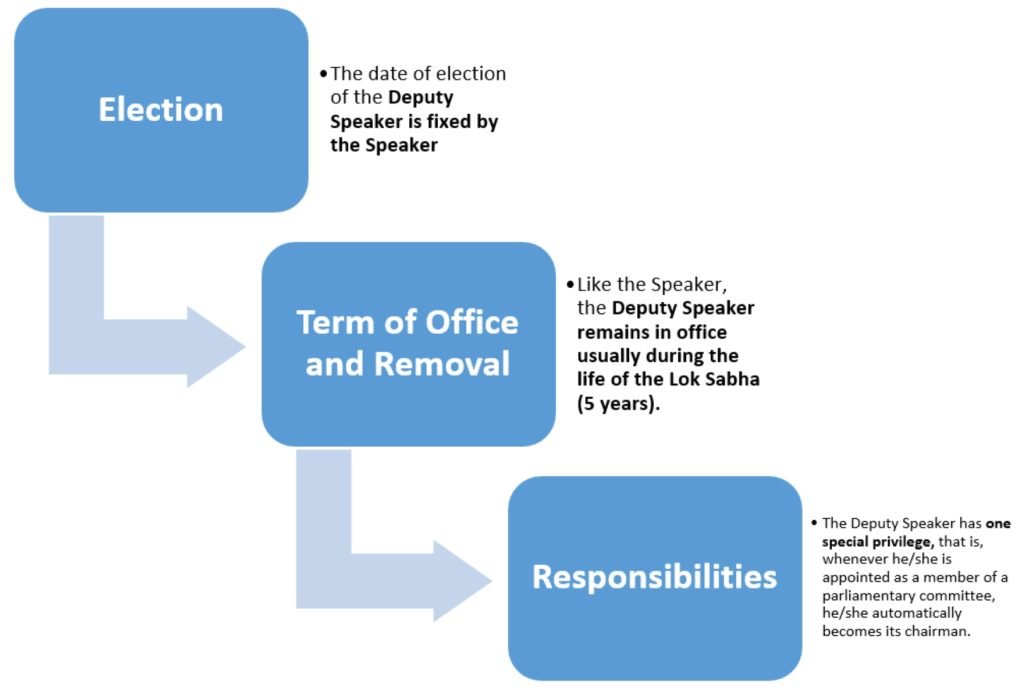
GMO Rice
The Hindu
GS 3: Economy and Science and Technology
Context:
- Recently, candy giant Mars Wrigley carried out a mass recall of several batches of its Crispy M&Ms across Europe.
- It was due to the use of Genetically Modified rice flour that allegedly originated in India, according to the European Commission’s rapid alert system.
India’s Response:
- The Commerce Ministry pointed out that GM rice is not grown commercially in India, let alone export.
- India also promised a thorough enquiry by its agricultural exports authority.
- The Ministry alleged that the case was a “futile conspiracy to malign the image of India as a reliable food security provider”.
- India suspected that the GM ingredient may have been added in Europe to cut costs, not in India where commercial GM cultivation is banned.
- The reason behind such suspicion is the quantity involved is too big.
- Such high quantities can not come from the leaked output from controlled trial cultivation.
GM Food:
- GM Food is food with modified genes for certain traits.
- Their properties are altered in order to enhance their pest resistance like in BT Cotton, DMH-11 Mustard and to enhance nutritional values like Golden Rice.
- Commercially in India, only BT Cotton can be grown.
- The approval and regulation for GM crops in India is done by the Genetic Engineering Appraisal Committee (GEAC).
- In August 2020, FSSAI had also issued the order that 24 food crops the country imports would need a ‘non-GM-origin-cum-GM-free certificate’.
| India’s annual rice exports amount to 18 million tonnes worth Rs. 65,000 crores and reach more than 75 countries. |
